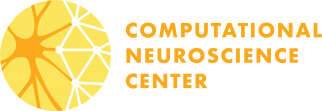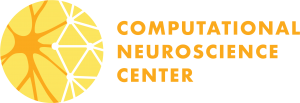Former Undergraduate Students

Omar Abdelbadie
Omar was born in Egypt, but has been living in Bellevue for the last 8 years. He is a neurobiology major and a Japanese minor. He has worked as an undergraduate assistant in Dr. Horacio de la Iglesia’s Biological Rhythms Lab and will be undertaking another research project in the laboratory of Dr Scott Murray, working on fMRI studies of context dependence in vision. His research interests include sleep, learning/memory, and neuroimaging.

David Boe
David is primarily interested in Brain-Computer Interfaces and their application to prosthetics. He works in the Chet Moritz laboratory which focuses on spinal cord injury and developing therapeutic neuroprostheses in the rat. He hopes to ride the wave of innovation in prosthetic engineering, using his education in neurobiology and computational principles to better enhance the lives of those with physical disabilities. He plans to attend graduate school in Neural Engineering after working in research in the Seattle area.

Bethanny Danskin
Bethanny Danskin is an undergrad majoring in Neurobiology with a minor in Applied Mathematics. She plans to attend grad school in the field of neurobiology. She works in the lab of Dr. Marti Bosma, a developmental neurobiology lab that studies spontaneous neural activity in the developing mouse hindbrain using optical imaging and electrophysiological techniques. More specifically, Bethanny uses simultaneous calcium dye imaging and patch clamp to observe characteristics of depolarization waves and the properties of cells at the initiation zone. She has always been curious about how something as complicated as a brain develops with both such plasticity and precision.

Michelle Drews
Michelle is currently majoring in Neurobiology and Biochemistry with departmental honors, and minoring in Bioethics and Humanities, as well as participating in the program in Computational Neuroscience. She comes from a research background in Pathology, working in the lab of Dr. George M. Martin and Dr. Junko Oshima – where she has helped with several different projects on genetic factors in geriatric disorders and normative aging. Her thesis project focuses around gaining a better understanding of certain cell cycle abnormalities in the pathological progression of Alzheimer’s Disease. She is also involved in UW’s Department of Nuclear Medicine, and has recently become very interested in the use of radiology as a way of seeing into the brain, for diagnosis and beyond – while as an ethicist keeping her eye on the implications such technology might have bioethically. In the computational arena, she is particularly interested in getting involved in research that utilizes radiological techniques, or research with applications in neuropathology.

Cameron Fisk
Cameron is from the one-stoplight town of Naches, Washington. He is studying Neurobiology. He mentors high school seniors through the UW Dream Project and is a Resident Advisor. He would like to research in a part of the neuroscience field that is closer to the intersection of psychology and neurobiology, or where the mind meets the neuron. He has joined the laboratory of Nino Ramirez, at Childrens’ Research Institute, to work on mechanisms of brain oscillations.

Derek Nhan
Derek is majoring in Neurobiology and Biochemistry with an interest in brain-computer interfaces as therapeutic means for neurological diseases. He hopes to pursue research that uses computational methods as the basis for disease modeling or in development of biomedical technologies and is aiming for a career in medical sciences. He has joined the lab of Dr Adrian Lee to research auditory scene analysis.

Igor Tyushkin
Igor was born in the Ukraine but immigrated here with his family in 1993. At 17 he entered the running start program at Highline CC and got his Associates in Science with an emphasis on biology. He transferred to the UW and is currently doing a double major in Neurobiology and Biochemistry. He got interested in Neurobiology because his 27 year old sister suffers from mental retardation and the physicians have not been able to explain what is wrong with her. He is very interested in joining a neural engineering lab that deals with prosthetics and finding ways to connect them to the nervous system. Another area of interest is cochlear implants or research on the visual system. Igor is doing his research project in the lab of Lee Osterhout, working on language processing.

Jenny Zhou
Jenny is majoring in neurobiology and biochemistry, with a minor in global health. In the long term, she plans on going to medical school. Currently, she is involved in neuropharmacological research on the role of the cannabinoid system in Huntington’s disease. Having always been interested in the intersections between computation and biology, she is very excited to be a part of the computational neuroscience training program and to learn to use computational approaches to solve problems in neuroscience.

Phanith Touch
Phanith is majoring in Neurobiology with college honors. He comes from a research background in cardiology and molecular biology. Previously in the Dichek Lab, Phanith helped with two projects aimed at clarifying the pathogenesis of atherosclerosis and aortic aneurysms. He soon realized after entering the Neurobiology major that systems of the brain such as the visual system captivates his curiosity and engages him intellectually. This curiosity led him to Jay Neitz’s lab where he works with current models of color vision to develop a thorough neurobiological explanation of hue appearance across individuals. Phanith is enjoying the computational neuroscience training program and is excited to utilize what he is learning within a research setting. Outside of his academic life, he enjoys reading historical fiction and playing the guitar.

Nivretta (Nivi) Thatra
Nivi is a senior majoring in Neurobiology and minoring in both Global Health and Quantitative Sciences. As a freshman she joined the lab of Dr. Eliot Brenowitz, whose focus is on the neural circuitry of avian song. Since then, Nivi has led a project examining adult born neuronal survival in breeding versus nonbreeding conditions of the avian system. The Computational Neuroscience program encouraged her collaboration with Dr. David Perkel, with whom she is now using experimental data from the Brenowitz lab to build a comprehensive computational model of neural birth, death, and migration. Nivi has truly enjoyed the complexity and interdisciplinarity of her early research experiences, and hopes to continue her growth as a scientist by pursuing a doctoral degree in neuroscience, biostatistics, or immunology. Her less academic sources of enjoyment include multicultural approaches to philosophy and food.

Mathew Summers
Mathew is a Neurobiology and Biochemistry double major, with a minor in Applied Mathematics. He works in Fred Rieke’s lab supplementing electrophysiological data with psychophysical experiments to better understand the neural circuitry underlying interactions between rod and cone photoreceptors. Mathew is broadly interested in the biophysical mechanisms through which neural systems operate, and the implications these modes of action have for the organism as a whole. He intends to pursue a PhD program in neuroscience upon his graduation in the spring of 2015.

Thida Myint
Thida was born in Myanmar and moved to Washington when she was 10. She is currently majoring in Neurobiology, with a focus in Computational Neuroscience. She previously worked in a nuclear chemistry lab at the UWMC, helping analyze data to develop a better synthesis for fluorescent tags targeting the HER2 protein. She is currently working on developing a neural network model in Dr. Bill Spain’s lab, in order to explore neural resonance and the generation of oscillatory systems. Thida is interested in how the brain controls coordination of homeostatic functions, especially as it relates to the heart. Her future goal is to go to medical school, complete the surgical residency and become a cardiothoracic surgeon.

Karl Marrett
Karl Marrett is a junior majoring in Neurobiology with departmental honors and minoring in applied math. He came from a research background in ecology and plant physiology, and worked in public and global health research at Battelle in Seattle. His current research is with Professor Adrian KC Lee designing a high bit-rate auditory P300-based brain computer interface (BCI) for patients with ALS or for commercial use. The Computational Neuroscience Training Program and involvement with the Center for Sensorimotor Neural Engineering has instilled a passion for pursuing research in the biophysics of neural engineering problems. He is interested in pursuing projects on learning models in relation to BCIs and continuing his academic education in areas of applied math, biophysics, or biomedical engineering at the graduate level.

Teresa Jiang
Teresa is an undergraduate Neurobiology major who is also minoring in Bioethics and Humanities. Her academic interests are broadly in developmental neurobiology and neurological disease research. She is currently working in the developmental neurobiology lab of Dr. William Moody on spontaneous waves of neural activity in the developing mouse cortex. In the future, she hopes to concurrently pursue her interests in research and in medicine. In her spare time, she enjoys reading, playing music, and running.

Lars Crawford
Lars is currently majoring in Neurobiology and is thoroughly enjoying the computational focus provided by the Computational Neuroscience Program. He is thoroughly interested in the brain at all scales and the use of technology to answer questions about it as well as the reverse: learning from the structure and function of neuronal systems to inspire the design of new technologies. The program has provided an excellent avenue for the learning and intersection of both. Lars’s interest in technology motivates his current research in modeling the layout and coverage of functional maps upon the primary visual cortex under Dr. Wyeth Bair. His future goal is to become a neural engineer, designing devices that interact seamlessly with the body in an effort to replace loss of function and potentially, someday, even augment the human form.


